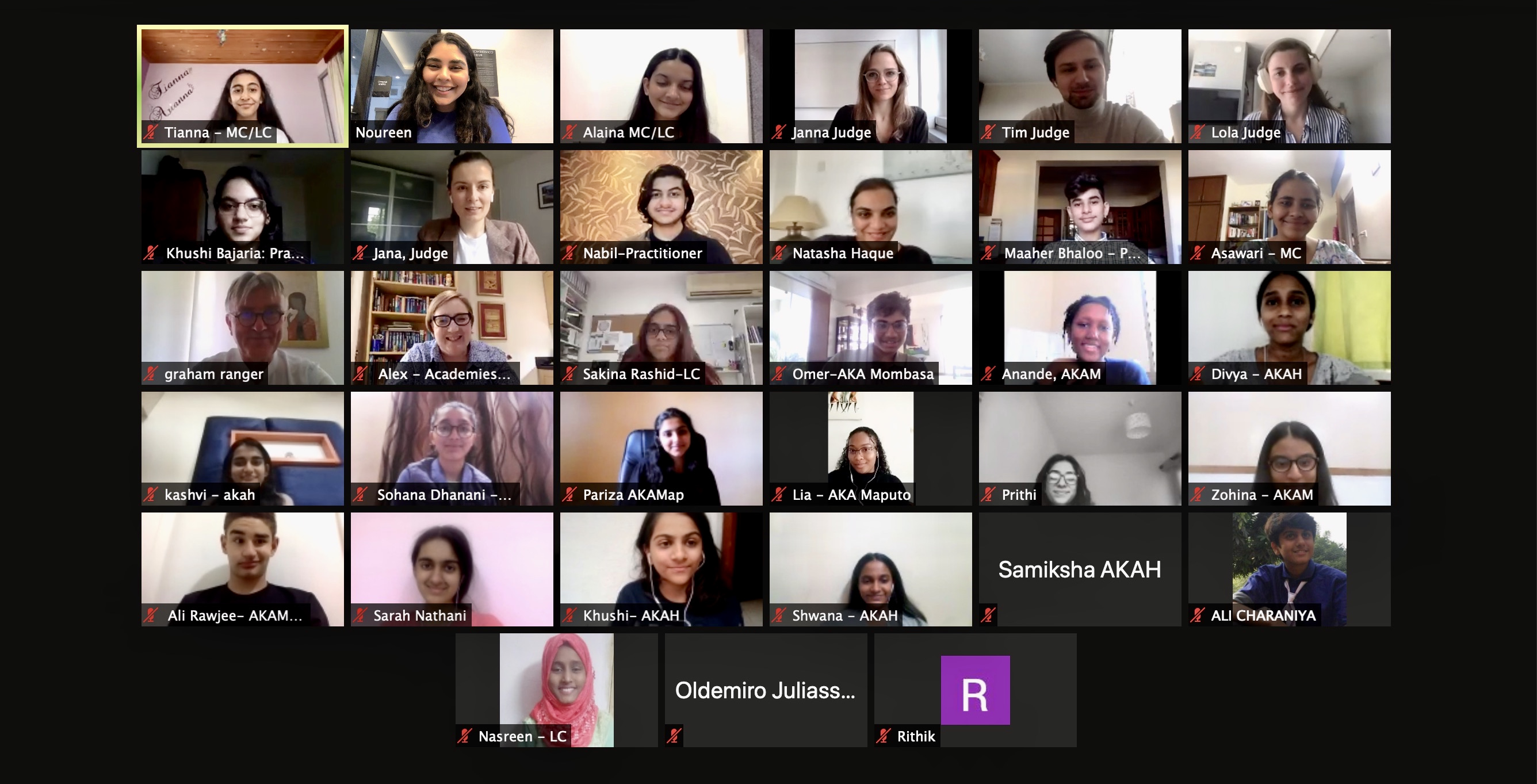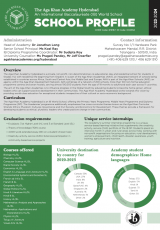Students from across the Academies network participate in inaugural Climate and Environment Conference
From 28-30 May 2021, the Aga Khan Academies held its inaugural Climate and Environment Conference with over 70 students from across the Academies network in attendance, along with alumni and prominent keynote speakers and guests.
Throughout the virtual conference, students presented their own environmental initiatives and interacted with individuals whose work focuses on conserving the climate and environment. A Shark Tank-style event was also a part of the conference, in which students showcased their eco-friendly projects and received feedback from PhD students focusing their research on the climate, energy efficiency and more.
"I feel as though having students from the different Academies at the conference was a lot more beneficial than I was expecting it to be,” said Marie-Claude Simbine, a Grade 8 student at the Aga Khan Academy Maputo. “Being able to hear international perspectives and exchange sustainability strategies helped me better reflect on my community and how I could make a positive difference with the help of my colleagues. Each workshop helped me get to know the other students enough to be able to communicate effectively with them and learn about each of their cultures. It was clear that even though we were from different age groups and countries, we were all working towards the same goal, keeping in mind that each simple idea would get us closer to it."
During the conference, students participated in workshops with Marina Olshanskaya, a climate change coordinator for the Aga Khan Development Network (AKDN), and Dr Hristo Dikanski, who leads the Green Construction Programme at the Aga Khan Agency for Habitat (AKAH). Students were given insight into the environmental costs of buildings, along with being challenged by the workshop leaders to consider possible solutions to reduce these costs.
The highlight of the conference was its two keynote speakers, Onno Ruhl and Zahira Virani. Mr Ruhl is the General Manager of AKAH and has held positions in the World Bank, as Country Director for Nigeria, and more recently as Country Director for India. He has a longstanding reputation for driving organisational change, building partnerships, as well as experience in emergency response and natural disaster reconstruction. Ms Virani is the United Nations Resident Coordinator (UNRC) in Angola – the UN’s highest-ranking representative and leader of the UN Country Team. Prior to her assignments as UNRC, Ms Virani served as Deputy Representative with UN Development Programme (UNDP) in Bosnia and Herzegovina and before that as Deputy Country Director with UNDP Tajikistan. Both speakers discussed their work and the importance of preserving the environment for the future with a highly-engaged student audience from across the Academies network.
Students interacted with familiar faces through an alumni panel that was organised during the conference. The alumni discussed not only how their Academies’ education empowered them to further their studies at the university level relating to the environment, but also how they have carried forward the values they were taught as a student at their respective Academy to be environmentally conscious changemakers in their careers.
“Given that climate change is such an overreaching thing, your contribution to environmental sustainability doesn’t have to be something that you’re directly involved in or must learn about, it’s more about the skills you pick up and the Aga Khan Academies teaches that perfectly,” said Raghuveer Vyas, Class of 2016 from the Aga Khan Academy Mombasa. “One of the big ones is interdisciplinarity – can you take lessons that you’ve learned from different subjects, different topics and different people and bring them together to understand them as a whole, which is something that’s so critical to climate change.”
“Things like pluralism, which is taught by the Academies, is important when you’re working with people from so many different national, cultural and environmental contexts. Do you have the ability to talk to different people and engage with them and understand what they’re going through? And it’s these skills that you’re going to come into use. Learning about climate change and gaining that knowledge can come at any time and it’s a work in progress, but I think it’s really about trying to make sure that you develop the skills that will help you tackle climate change irrespective of the path you choose to do it from. “
This inaugural Climate and Environment Conference is one of the many initiatives students from across the Academies network have participated in within the field of environmental responsibility in recent times. Moving forward, we hope to share, support, and encourage more of these endeavours led by our environmentally-responsible leaders of tomorrow.






